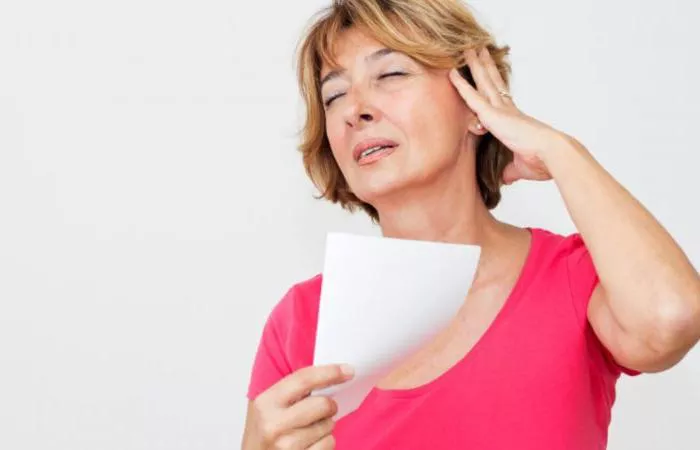Hot flashes are a common symptom for women going through menopause. They can cause sudden feelings of warmth, usually in the upper body. Some women also sweat, turn red, or feel their heart beating faster.
When Do Hot Flashes Usually Start?
Most women start to have hot flashes between the ages of 45 and 55. The average age for hot flashes to begin is around 51 years old. This age is also the typical time when natural menopause occurs.
Why Do Hot Flashes Happen Around This Age?
Hot flashes are caused by changes in hormone levels. During menopause, a woman’s body makes less estrogen. This drop in estrogen affects how the body controls temperature. As a result, women can feel hot suddenly, even when the room is cool.
Are Hot Flashes the First Sign of Menopause?
Yes, for many women, hot flashes are one of the first signs that menopause is beginning. Some women notice them during perimenopause, which is the time before menopause starts. This stage can begin in a woman’s early to mid-40s.
How Long Do Hot Flashes Last?
The length of time varies from woman to woman. For some, hot flashes last only a few months. For others, they can continue for 7 to 10 years. On average, women have hot flashes for about 4 to 5 years.
Other Important Facts About Hot Flashes
What Do Hot Flashes Feel Like?
Hot flashes can feel different for each woman, but common symptoms include:
- Sudden warmth in the face, neck, or chest
- Red or flushed skin
- Sweating, especially at night (called night sweats)
- Feeling anxious or a fast heartbeat
- Chills after the flash passes
When Should You See a Doctor?
Hot flashes are normal during menopause, but there are times when a woman should talk to her doctor:
- If hot flashes are very strong or frequent
- If they cause sleep problems or affect daily life
- If they begin before the age of 40
- If other symptoms like bleeding or severe mood changes occur
Doctors can offer advice or treatment. Some women may take hormone therapy or other medications to feel better.
Can Young Women Have Hot Flashes?
Yes, but it is less common. Women who go through early menopause (before age 40) may also have hot flashes. This can happen because of surgery (like removing ovaries), medical treatments (like chemotherapy), or certain health problems.
Do All Women Get Hot Flashes?
Not every woman gets hot flashes. Some may only have a few, while others may not experience them at all. Family history, lifestyle, and health all play a role. For example, smoking and high stress can increase the chance of hot flashes.
Managing Hot Flashes
Natural Ways to Cope
Many women try lifestyle changes to help reduce hot flashes:
- Dress in layers so you can remove clothing if you get hot
- Use a fan or keep the room cool
- Avoid spicy foods, caffeine, and alcohol
- Practice deep breathing or meditation
- Stay active with regular exercise
Medical Treatments
For strong hot flashes, some women choose medical options:
- Hormone Replacement Therapy (HRT): Helps balance hormones but may not be right for everyone
- Non-hormonal medications: Some antidepressants or blood pressure medicines may help
- Herbal supplements: Some use products like black cohosh, but it’s important to talk to a doctor before trying these
Final Thoughts
Hot flashes are a common part of menopause. The menopause average age to start having them is around 51, but they can begin earlier or later. While they are usually not dangerous, they can be uncomfortable. If hot flashes affect your life, talk to a doctor about ways to manage them. With the right support and information, most women can find relief and stay healthy during this natural life stage.
Related topics:
Is Sudden Hot Flashes & Dizziness A Sign Of Menopause?
What Causes Hot Flashes During the Day?
What To Take For Hot Flashes Over The Counter?


